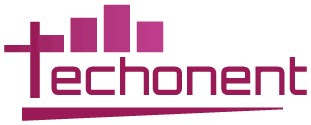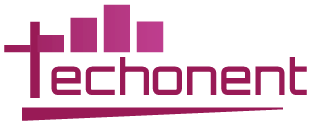
Search engine optimization (SEO) is a dynamic field that requires cutting-edge tools to keep up with the ever-changing digital marketing landscape. Your SEO strategy must adapt accordingly as search engines evolve and new algorithms are released. Selecting the right tools is vital for developing effective SEO tactics, tracking progress, and outperforming competitors. Whether you're a solo entrepreneur or part of a large marketing team, your chosen tools can significantly impact your SEO success. Below, we delve into the critical aspects of SEO tools that will help you make an informed decision.
Understanding the Essential Features of SEO Tools
When considering SEO tools, it's crucial to recognize the primary features that govern their efficacy. Keyword research functionality sits at the core of SEO, as it helps identify terms and phrases your audience is searching for. These insights can drive content creation and optimization strategies. However, keywords alone aren't enough; competitive analysis features are also paramount, enabling you to benchmark your performance against rivals and seize opportunities they might have overlooked.
Another essential component is backlink analysis, which scrutinizes the quality and quantity of external sites linking to your pages. Search engines use this key metric to gauge credibility and authority. On-page SEO audit features are equally important to ensure your website's technical framework adheres to best practices and is optimized for crawling and indexing.
SEO tools should also offer progress tracking over time. This includes rank tracking to monitor keyword positions and to receive alerts when significant changes occur. The goal is to provide a comprehensive view of your SEO efforts and the ability to react promptly to any fluctuations in search engine results pages (SERPs).
Lastly, it's beneficial if an SEO tool includes reporting capabilities. Not only does this help in analyzing your SEO strategies, but it also facilitates communication with clients or team members, offering clear evidence of progress and areas that necessitate improvements. Credible tools like those mentioned in SearchAtlas Reviews often exhibit these fundamental features.
Evaluating User Experience and Interface Design in SEO Software
The usability of SEO tools is just as important as their functional capabilities. A well-designed user interface (UI) can streamline the task of optimizing your site, making complex data accessible and actionable. Tools with intuitive dashboard layouts help you quickly navigate through various features, save time, and reduce the learning curve for new team members.
User Experience (UX) is pivotal in ensuring that your team can effectively utilize all available resources within the tool. Software that offers customization and allows users to create personalized reports or views can greatly enhance productivity. The key is to have a clear and coherent presentation of data to discern actionable insights quickly.
Furthermore, tools with responsive designs ensure that you can check on your SEO efforts from any device, which is especially helpful when adjustments need to be made on-the-go. Accessibility is a cornerstone of efficiency, and mobile-friendly features should be a consideration in your selection process.
Finally, support resources such as tutorials, guides, and customer service can impact user experience significantly. Reliable support means you won't spend time figuring out complex features or troubleshooting issues when they arise, ensuring continuous progress on your SEO objectives.
Checking for Integration Capabilities and Scalability Options
When determining the suitability of an SEO tool for your needs, consider its ability to integrate with other software you're already using. Integration can streamline workflows and enable centralized data management, creating a more cohesive and efficient digital marketing strategy. It can also facilitate data sharing across teams and departments, contributing to a more collaborative work environment.
Scalability is another fundamental aspect to look into. As your business grows, your SEO tool should be able to keep pace with increased demands. Look for scalable platforms, such as adding new features or support for more users without significantly dropping performance or usability.
Check whether the tool has an open API or partnerships with other digital marketing platforms. An open API can allow custom integrations that tailor the software to your needs. At the same time, partnerships may offer pre-built solutions that easily fit into your existing technology stack.
Altogether, selecting the right SEO tool requires carefully balancing essential features, user experience, integration capabilities, and scalability to ensure long-term success. By investing in a platform that aligns with your goals and adapts to evolving digital trends, you can effectively optimize your online presence and stay ahead of the competition.

